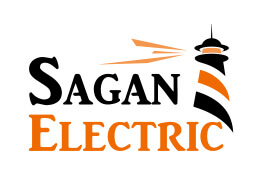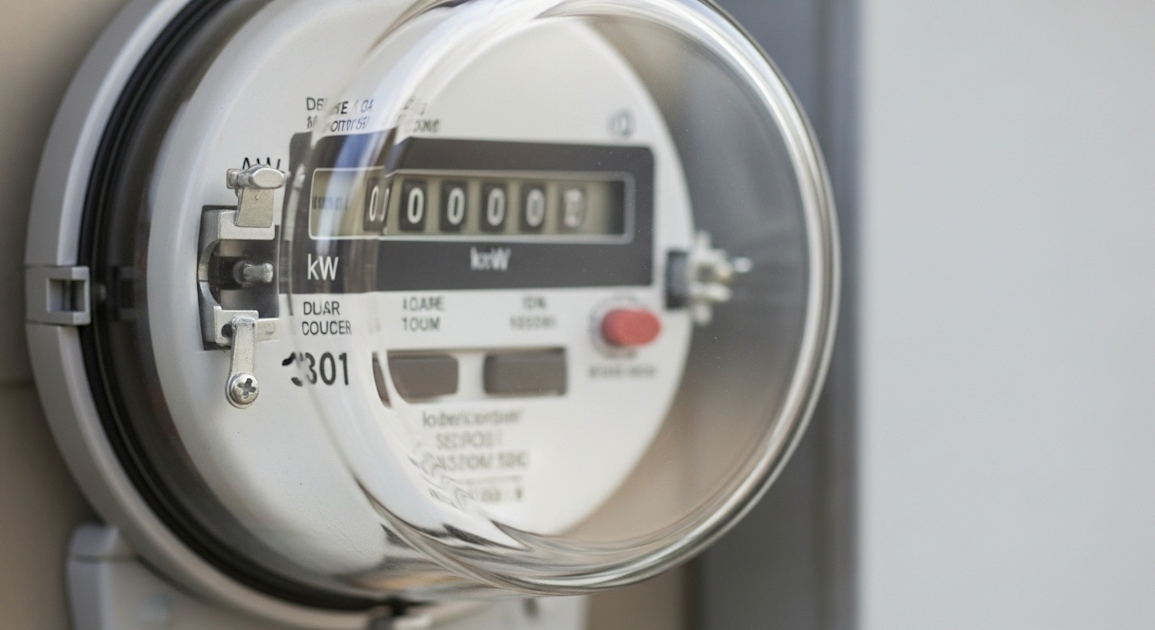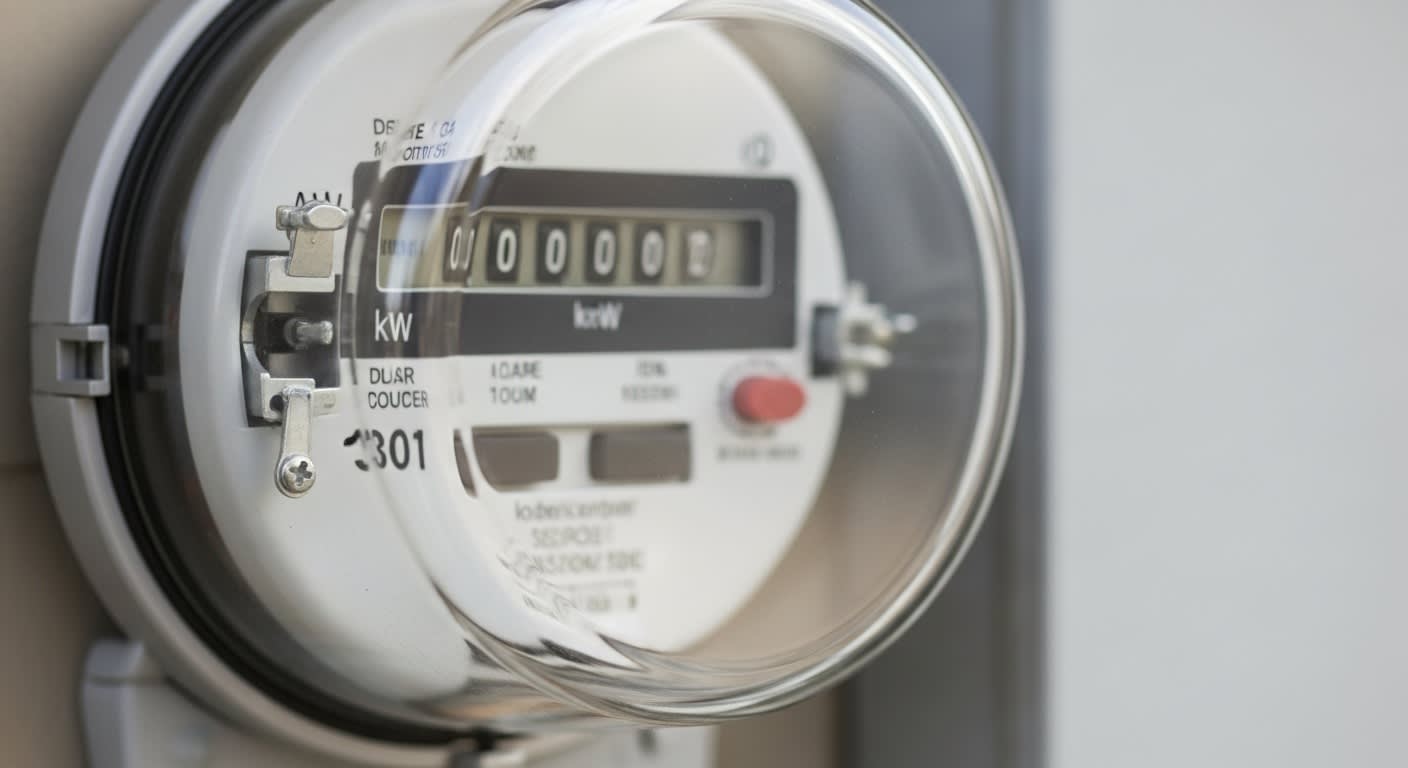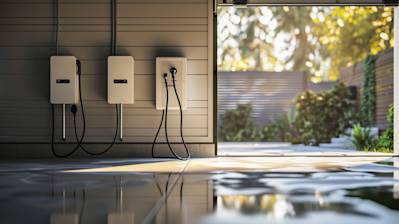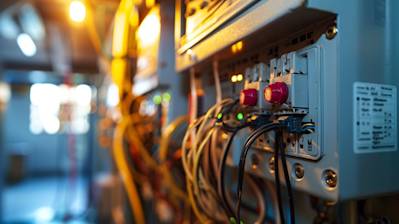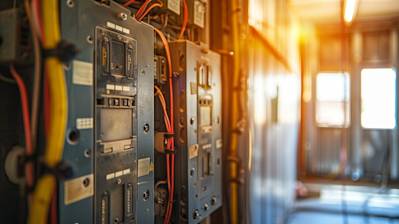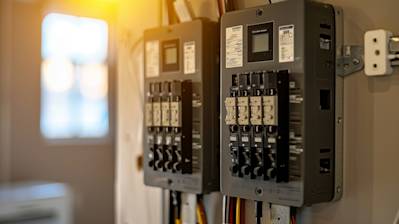Electricity has indeed become a fundamental part of our daily lives. At the core of measuring our utilization of this essential energy resource is a humble yet indispensable device known as the electrical meter. This article aims to give you a comprehensive understanding of the electrical meter: from what it is to its types, workings, significance, and even tips on reading your electrical meter.
What is an Electrical Meter?
Electric meters, also known as utility meters or energy meters, are devices installed by utility companies to measure the amount of electricity consumed by a residence, business, or an electrically powered device. Typically, electrical meters are calibrated in billing units, reflecting the absolute energy consumed over a specific period.
Types of Electrical Meters
Electric meters come in various types, each designed to cater to specific requirements. Here are the main types of meters:
-
Analog Meters: Also known as electromechanical meters, they are the traditional forms of meters which feature spinning discs and numeric dials to indicate energy consumption.
-
Digital Meters: Using a digital display, these meters show your precise electricity usage, pushing out the guesswork associated with analog dials.
-
Smart Meters: Fit for the digital age, smart meters provide real-time data to both the consumer and utility company. They enable efficient power usage, lower pollution, and save money.
Digging Deep into the Workings of an Electrical Meter
Now that we've looked at what an energy meter is and its types, let's delve into the workings of an electrical meter:
-
Analog Meters: The spinning disc is motivated by the current and voltage from the power lines. The number of rotations of the dial signifies the energy consumed, recorded by the five-dial display.
-
Digital Meters: They convert the incoming AC current into DC and then back into a square wave for precise calculation of energy consumption.
-
Smart Meters: These sophisticated meters send and receive data from the utility company, enabling flexible pricing based on supply and demand.
Significance of Electrical Meters
The indispensability of electrical meters is often underrated. Let's unravel the reasons:
- Accurate Billing: Electrical meters ensure consumers are only billed based on actual energy usage, offering everyone a fair deal.
- Energy Efficiency: Knowledge about energy consumption allows consumers to draft energy-saving strategies effectively.
- Facilitates Grid Stability: Utility companies can manage the power supply more efficiently with real-time data from smart meters.
How to Read Your Electrical Meter?
Reading an electrical meter, particularly an analog one, might seem daunting, but with a little knowledge, it can be done effortlessly:
-
Basic Rule of Reading: Always read the dials from left to right.
-
Reading the Dials: If a hand falls between two numbers, take the lower value. If the hand points directly on a number, check the dial to the right. If it has passed zero, pick the higher number.
Understanding how to read your meter will help monitor your electricity consumption, detect any unusual spikes, and improve your energy usage habits.
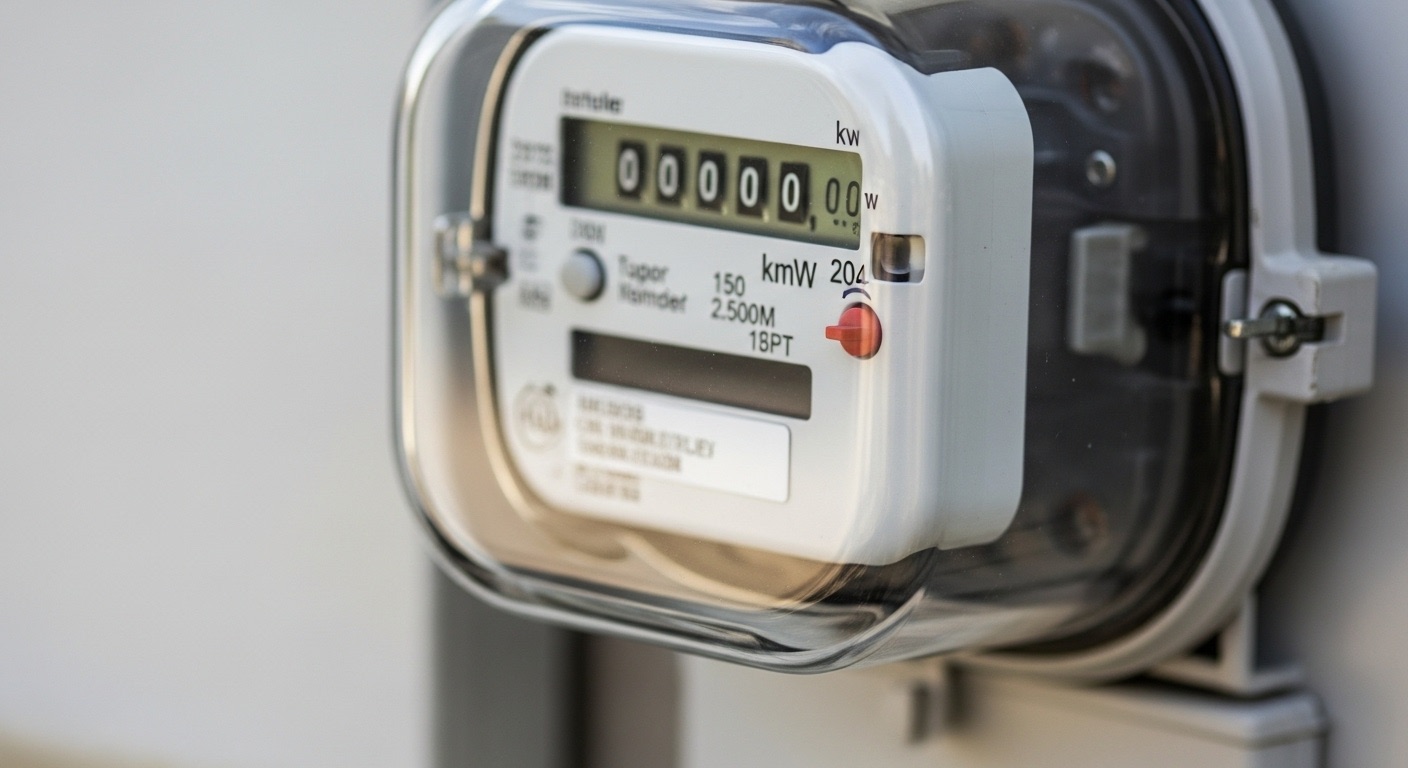
Frequently Asked Questions about Electrical Meter
What are the different types of Electrical Meters?
There are several types of electrical meters, each with its specific function:
-
Standard Meter: This is the most classical type of meter, which includes a set of rotating dials to display the units of power consumed.
-
Digital Meter: As the name suggests, this meter digitally displays the electricity usage. Some digital meters can even send readings directly to the energy supplier.
-
Smart Meter: Smart meters are the most advanced type of meter. They provide real-time information about energy usage, can be read remotely, and can help households reduce their energy consumption.
Why is my Electrical Meter spinning fast?
A fast spinning electrical meter can be because of several things. It could be due to a high energy-consuming device in your house, like a heater or an air conditioner. Sometimes, it could also be a sign of electrical faults, including short circuits or wiring issues. In such cases, it's recommended to contact a professional electrician for help.
How is an Electrical Meter installed?
Typically, a licensed and professional service provider, generally your utility company, performs the installation of electrical meters. The process involves making the necessary electrical connections between the meter and the supply and consumer cables. It's heavily advised against attempting to install or relocate an electrical meter on your own due to safety reasons.
Is it safe to touch an Electrical Meter?
While touching the exterior of the electrical meter (the case) isn't harmful, tampering with the meter or attempting to open its surrounding case can be very dangerous and it's strongly advised against. Keep in mind that electrical meters are connected directly to your power supply, so mishandling can lead to electrical shocks or even fire.
How do I read my Electrical Meter?
Reading your electrical meter varies depending on the type of meter you have. For a digital meter, the reading is usually displayed on an LCD screen. For a standard meter, you would read the set of dials from left to right. Each dial represents a digit in the meter reading, and the number on the dial indicates the amount of that digit. Smart meters can display their readings on a device inside your home, or even send it directly to your mobile device or computer.
How often should my Electrical Meter be replaced?
Typically, electrical meters are robust and function for a long time. However, it's advised to get them checked every ten years. In case of any malfunction or inaccuracy in readings, contact your utility provider immediately for replacement.
Can my Electrical Meter affect my electric bill?
Yes, it can. If your electrical meter is malfunctioning, it might record inaccurate readings, resulting in an incorrect electricity bill. If your bills suddenly surge without any apparent increase in usage, it might be a good idea to get your meter checked.
Is it possible for an Electrical Meter to run backwards?
Normally, electrical meters are designed to run forwards—to record your consumption. However, houses with solar panels may find their meters running backwards when the panels are generating more power than the house is consuming, feeding the excess back to the grid.
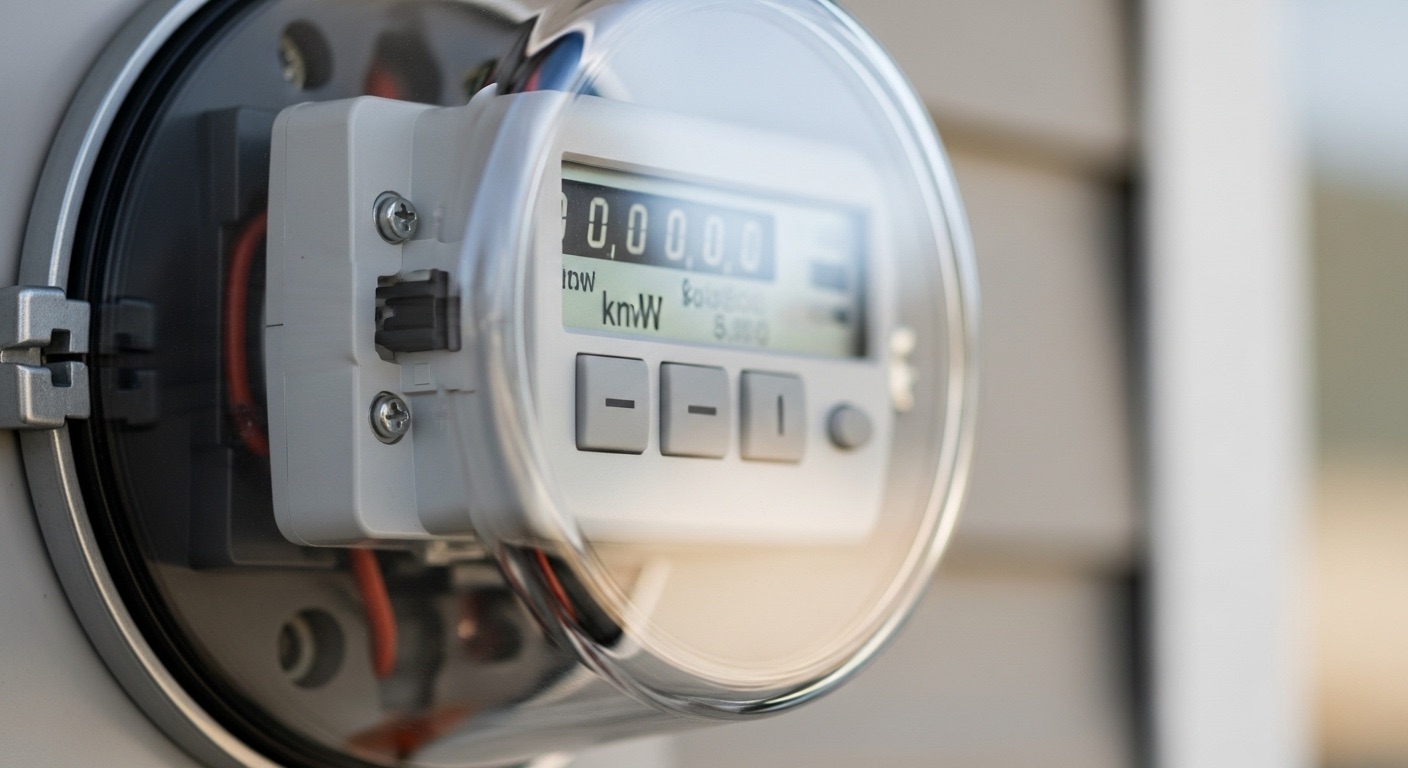
Pros of Electrical Meters
Accurate Measurements
High Accuracy Level
Electrical meters provide very accurate readings. Because of precise internal components and technology, they create highly accurate measures of energy consumption. Electric companies rely heavily on these measurements to bill their clients accurately.
Up-to-date Information
Electrical meters also provide real-time or near-instantaneous feedback on energy consumption. Users can trace their energy usage in a given time frame, helping them to adjust their power demands accordingly.
Increased Efficiency
Monitoring Energy Usage
Electrical meters are an invaluable tool in helping households and firms to operate more energy-efficiently. They allow users to keep track of energy consumption and identify appliances or systems that use too much power. Additionally, they can highlight times of unusually high or low energy use, providing an opportunity for further investigation and potential energy-saving adjustments.
Reducing Carbon Footprint
By empowering users to make informed decisions about their energy consumption, electrical meters have an indirect impact on reducing the carbon footprint. As users become more aware of their consumption, they can choose energy-efficient appliances or convert to renewable energy sources, thereby reducing the carbon emissions associated with their energy use.
Cost-Effective
Saving Money
Regular monitoring of energy usage can also lead to cost savings. Individuals and businesses can adjust their energy consumption based on the information provided by the meter, reducing energy waste and cutting down utility bills.
Cons of Electrical Meters
Installation Costs
High Initial Expenses
One of the main drawbacks of electrical meters is the installation cost, which can be a significant initial expense. The cost can be further increased if the meter installation requires an electrician's assistance or any subsequent structural modifications to the building.
Technology Challenges
Difficult to Understand
The technical aspects of electrical meters can sometimes be challenging for users to understand. With digital meters replacing traditional analog meters, understanding the operation and reading the meter may require some knowledge and experience. This can make it difficult for average consumers to make meaningful use of the data the meter provides.
Susceptible to Cyber Threats
Digital meters, especially smart meters connected to the internet for data transmission, can potentially be exposed to cyber threats. If not secured adequately, hackers may access energy consumption data, causing privacy concerns.
Accuracy Concerns
Potential Inaccuracy
While in most cases, electric meters are quite accurate, there have been instances where inaccurate readings have led to billing disputes between consumers and energy providers. This could be due to many reasons, including faulty meters, incorrect meter reading, or meter tampering. Dealing with these disputes can be a daunting and time-consuming process for the consumer.
Influenced by External Factors
Effect of Temperature and Humidity
Electrical meters, especially analog ones, can be influenced by external factors such as temperature and humidity changes. These changes can affect the meter's components, leading to inaccurate readings. Homes in areas with considerable climate variation may find this to be an issue.
Misconceptions About Electrical Meters
Electrical meters, also referred to as energy meters or electric meters, are devices installed by utility service providers to accurately measure the consumption of electricity in homes, businesses, and any other establishment using their services. These devices have increasingly evolved over the years from analog electro-mechanical devices to advanced digital smart meters.
However, along with these advancements often comes a number of misconceptions about electrical meters. These misunderstandings can stem from a variety of factors - incorrect information, urban myths, or even scams. Here, we delve into these false beliefs to clarify the truth about electrical meters.
'All Electrical Meters are the Same'
A common misconception is that all electrical meters function, measure, and operate identically. However, there are several types of meters with different technologies behind them.
Analog Electric Meters
The old-classic analog meter, once common in many homes, uses a series of dials to measure energy consumption.
Digital Electric Meters
These are modern variations that display readings digitally. They're easier to read and can provide more precise readings than their analog counterparts.
Smart Meters
Smart meters are high-tech digital meters that automatically transmit data about your electricity usage directly to your utility provider. They display your usage in real time, which can help in energy management.
'Smart Meters are Dangerous'
Smart meters sometimes get a bad rep as being unsafe due to concerns about radiation exposure. However, the radio frequency (RF) emissions from smart meters are generally deemed to be safe. According to the U.S. Federal Communications Commission (FCC), smart meters typically produce less RF exposure than other household devices like cell phones, baby monitors, or microwaves.
Furthermore, a survey of studies by the California Council on Science and Technology found no health impacts from RF exposures associated with smart meters.
'Electrical Meters Can Be Easily Tampered With'
While it is technically possible for a person to tamper with an electrical meter, it is highly illegal and not an easy process. Electricity meters are sealed by the provider and any tampering can be easily noticed. In addition, newer digital and smart meters come with built-in anti-tampering technology.
Beyond the illegality and difficulty, people should not attempt this due to the severe safety risks involved, including the threat of electrocution.
'An Electrical Meter Reading Always Matches My Electricity Bill'
While your electricity bill should generally correlate with your meter reading, there can be discrepancies. These can result from several factors like estimation errors if the utility company estimated your usage, time-of-use rates, or a misread of the meter. Make sure to read your bill carefully, and if you notice any substantial discrepancy, you can contact your utility company for clarification.
'Smart Meters Invade Privacy'
Some people worry that because smart meters record when and how much electricity is used, they could intrude on personal privacy. However, laws are in place to protect data privacy and expressly dictate what data can be collected and how it is used. For example, in the US, laws restrict the specific customer data that utility companies can collect and share.
'Meters Run Backwards with Solar Energy Systems'
There's a myth that electrical meters connected to solar power systems run backward as power is generated and returned to the grid. While this was possible with some older analog meters, it is not generally true with digital and smart meters. Today, most meters either measure incoming and outgoing electricity separately or have a stop that prevents them from running backward.
In conclusion, electrical meters, especially new digital and smart meters, are more complex and sophisticated devices than often given credit for. They contribute to effective energy management and offer features that promote energy-saving practices. So next time you glance at your electrical meter, remember the myths and misconceptions that have been debunked here and appreciate it for the device it truly is.
Summary
So, that's the story with electrical meters. No doubt about it, these devices play a massive role in managing electricity usage in our homes. Not only do they help power companies track and bill energy consumption, but they also allow us to understand and potentially limit our usage, leading to more efficient and sustainable homes.
When you look at an electrical meter, you may just see a box with numbers. But remember, it's so much more than that. This small box is documenting your electrical footprint, giving you the power to take control and implement positive changes. Understanding your electrical meter is the first step towards making smarter energy choices.
At the end of the day, the electrical meter is a gateway to a better understanding of your consumption habits. Think of it as your silent partner in achieving efficiency and sustainability. And hey, who knows - making the most out of your meter may even lead to a reduced energy bill. Now, who wouldn't like that?
About Sagan Electric
Based out of the sunshine-filled city of Sacramento, California, Sagan Electric is your go-to, trusted electrical service provider. Our team of skilled electricians is dedicated to providing top-notch and reliable service for both residential and commercial needs. Backed by years of experience and expertise, we specialize in everything from installation and maintenance to troubleshooting and repair jobs. We're not just any electric company - we're an integral part of the Sacramento community, working tirelessly to help keep the lights on (literally!) in our beautiful city. Plus, our commitment to your satisfaction ensures we always leave you with a smile. Trust Sagan Electric - we're redefining the boundaries of what an electric service company can be.
Tags: energy monitoring, electrical consumption, utility billing,
